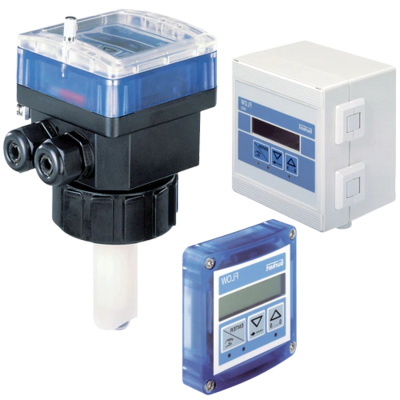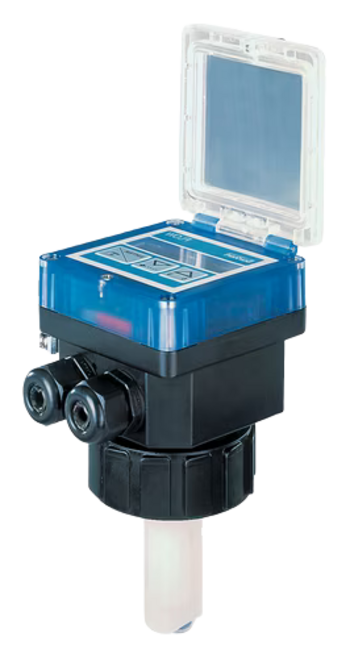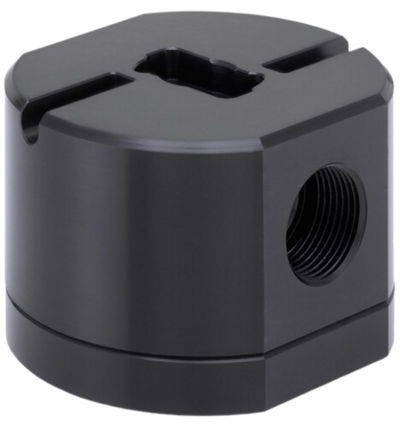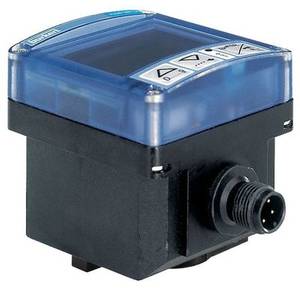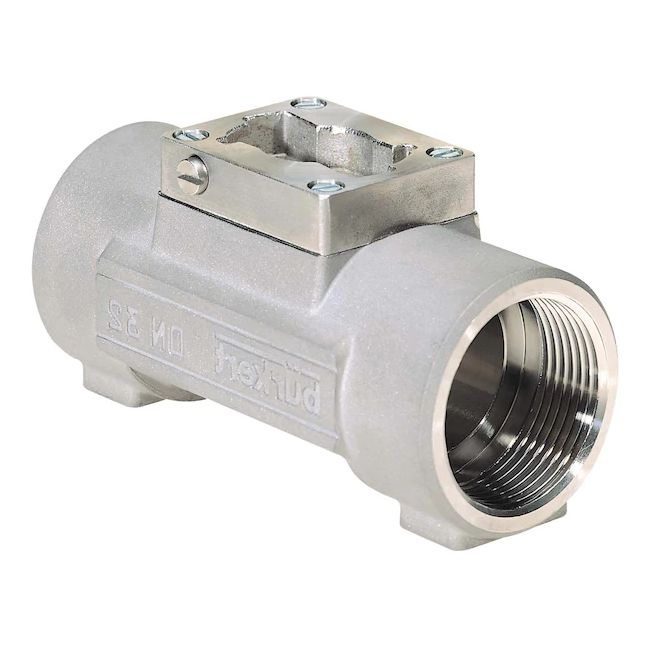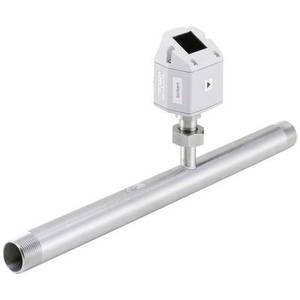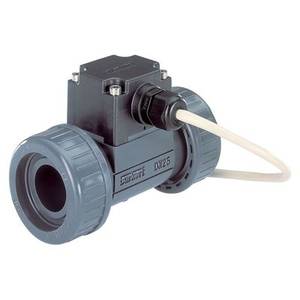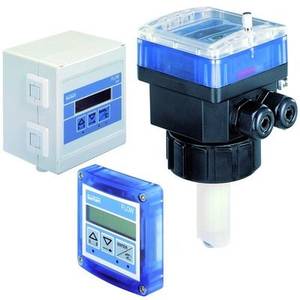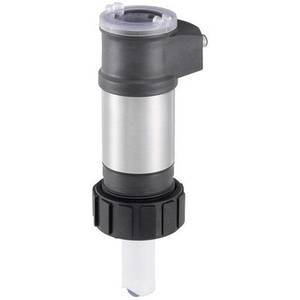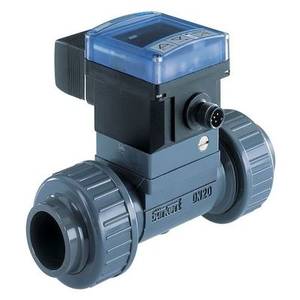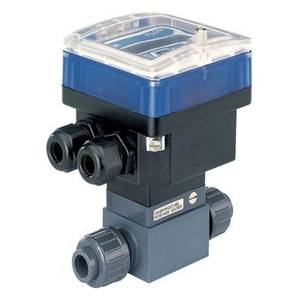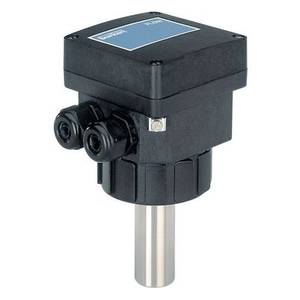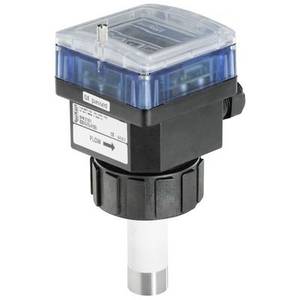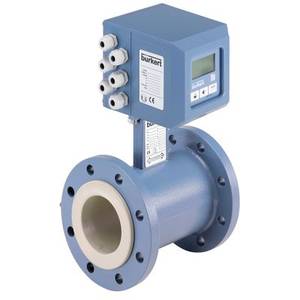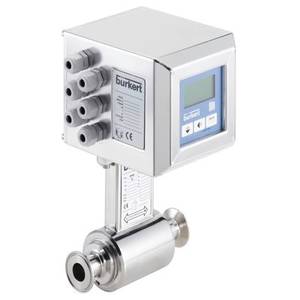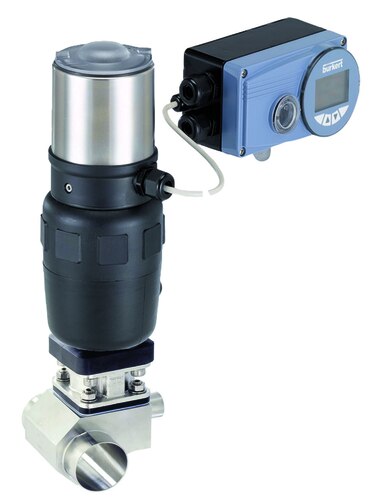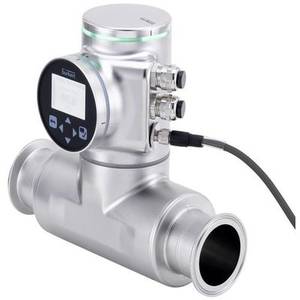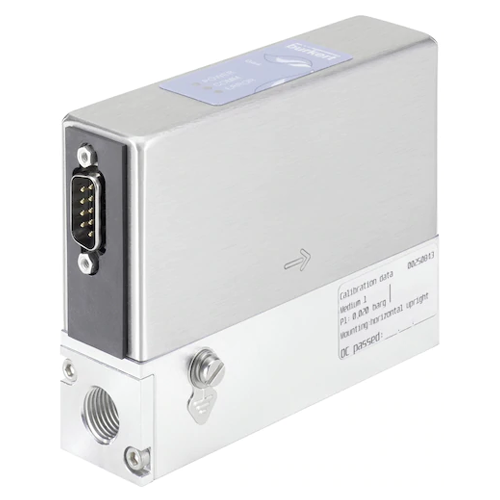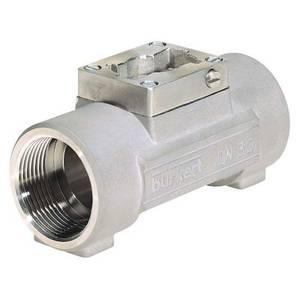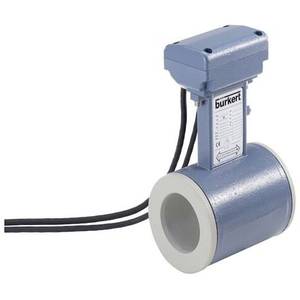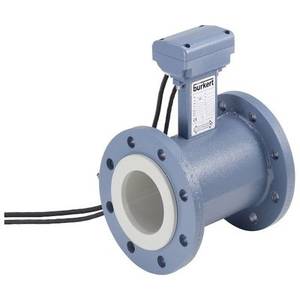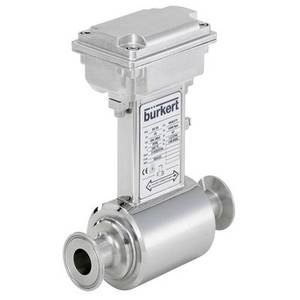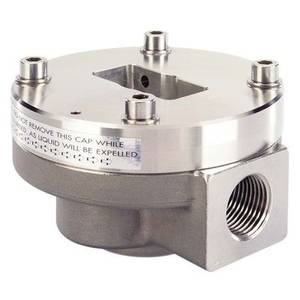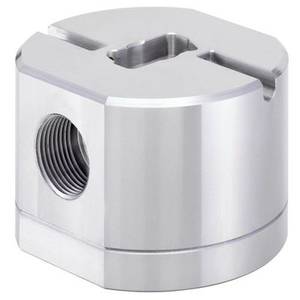Burkert Flow meter
Burkert 418778 Insertion flow sensor
- Sensor type: insertion type
- Flow range: 0.02-50.0 m³/h
- Output: 4-20 mA
- Supply voltage: 24 V DC
- Body: stainless steel
Burkert 418779 Digital flow meter
- Measuring method: turbine
- Measurement range: 0.01-100 l/h
- Measurement accuracy: ±1%
- Operating temperature: -10 to +60 °C
Burkert 567223 Inline flow fitting oval wheel
- High measurement accuracy
- Durability
- Insensitivity to contamination
- Wide temperature range
Burkert 560547 Integrated flow switch with display
- Flow rate measurement,
- 12-36V,
- 0-100°C,
- paddle wheel/oval gear.
Burkert flow 5030 pvdf wheel
- Suitable media: Neutral, mildly aggressive, particle-free liquids
- Construction: Inline quarter-turn technology for leak-free operation
Burkert Type 8008 of flow meters is designed for measuring particularly high flow rates and uses the colorimetric measuring principle.
Burkert paddle wheel flow meter
- Linearity: ±0.5% of full scale
- Repeatability: ±0.4% of the measured value
- 4-20 mA output uncertainty: ±0.16 mA
Burkert flow meter 8025
- Pressure range: Up to PN 10
- Measurement tube size: DN 06 to DN 400
Insertion Flow Transmitter
Flow rate
Burkert 8035
- Pressure rating: Up to PN 16
- Measurement tube size: DN 06 to DN 65
The flow meter type 8036 is a compact device specially designed for measuring the flow of solids-free liquids
burkert 8045
- Protection class: IP65 (electronic module), IP68 (sensor)
Positive displacement flowmeter for continuous flow measurement is specially designed for use with highly viscous liquids
The flow meter / flow switch is used for high viscosity media such as glue, honey and oil.
Mass flow meters are used for direct measurement of gas consumption in industrial processes.
Mass flow meter for gases
Burkert s030
- Measurement principle: Paddle wheel
- Media compatibility: Neutral to mildly aggressive, particle-free liquids
- Connection: Inner thread, RC (ISO 7/1) 1 1/4
- Pressure rating: PN 16
Inline fluid sensor
Burkert Flow Meter Solutions
Burkert's main specialty is flow measurement solutions. They are known for manufacturing a wide range of products including valves, sensors, controllers, and flow meters. In particular, below we will look at Burkert flow meters in more detail.
Types of Burkert Flow Meters
Let's focus our attention on Bürkert flowmeter types.
Electromagnetic flow meters
These meters use the principle of electromagnetic induction to measure the flow rate of conductive fluids. They are suitable for a wide range of applications, including water treatment, chemical processing, and food and beverage industries.
Ultrasonic flow meters
Burkert offers ultrasonic flow meters that utilize ultrasonic waves to measure the flow of liquids. These meters are non-intrusive and can be used for various applications, including water and wastewater management.
Mass flow meters
Mass flow meters measure the mass flow rate of fluids directly, making them suitable for applications where mass is a critical parameter.
Coriolis mass flow meters
Burkert provides Coriolis mass flow meters that measure the mass flow rate of fluids by analyzing the Coriolis effect. These meters are known for their accuracy and are used in industries such as pharmaceuticals and chemicals.
Variable area flow meters
Also known as rotameters, variable area flow meters use a float inside a tapered tube to indicate the flow rate. Burkert offers variations of these meters suitable for different fluid types and flow ranges.
Turbine flow meters
Burkert turbine flow meters use a rotor with blades placed perpendicular to the flow to measure the velocity of the fluid.
Vortex flow meters
Burkert fluid flow control technology includes vortex flow meters that use the vortex shedding principle to measure flow. These meters are used for both gas and liquid applications.
Differential pressure flow meters
These meters operate based on the pressure difference across an obstruction in the flow path.
Advantages of Burkert Flow Meters
Burkert flow meters are known for their quality and performance, and they come with various advantages that make them suitable for a wide range of industrial applications. Here are some general advantages associated with flow meter Burkert.
Innovative technology
Burkert incorporates advanced technologies into their flow meters, such as electromagnetic induction, ultrasonic, Coriolis, etc. These technologies contribute to the efficiency and precision of the flow measurement process.
Ease of installation
These devices are designed for easy installation and integration into existing systems. This can help minimize downtime and streamline the implementation process in industrial facilities.
Low maintenance requirements
Burkert flow meters are designed with low maintenance in mind, reducing the need for frequent calibrations or adjustments. This characteristic is beneficial for industries where continuous operation is critical.
Accuracy
Such equipment is designed to provide precise and accurate measurements of flow rates. This accuracy is crucial in applications where precise control of fluid flow is necessary.
Versatility
Burkert offers a diverse range of flow meters suitable for measuring the flow of liquids and gases. This versatility allows users to choose a flow meter that best fits the specific requirements of their application.
Reliability
Burkert is known for producing reliable and durable flow meters. This reliability is essential in critical industrial processes where continuous and accurate flow measurement is crucial for operations.
Digital communication options
Burkert flow meters are equipped with digital communication capabilities, allowing for integration with control systems and providing real-time data for monitoring and automation.
Compliance with industry standards
Burkert flow meters are designed to meet or exceed industry standards for accuracy and performance. This compliance ensures that the meters adhere to established norms and can be used in various regulated industries.
Burkert Flow Meter Applications
Each Burkert flow meter finds applications across a diverse range of industries due to its versatility, accuracy, and reliability. Let’s check common applications.
Water and wastewater management
Burkert flow meters are used in water treatment plants and wastewater management systems to monitor and control the flow of water and various fluids. They help ensure efficient water distribution and treatment processes.
Chemical processing
In chemical industries, Burkert flow meters are employed to measure and control the flow of chemicals throughout various stages of production. The accuracy and reliability of these meters are crucial in maintaining precise chemical dosages.
Pharmaceutical manufacturing
Burkert flow meters play a vital role in pharmaceutical manufacturing processes where precision flow metering is essential for producing medications and pharmaceutical products.
Food and beverage industry
Burkert flow meters are utilized in the food and beverage industry for measuring and controlling the flow of liquids, such as juices, dairy products, and syrups. They ensure accurate ingredient dosing and maintain quality standards.
Oil and gas
In the oil and gas sector, a Burkert flow meter sensor can be applied to measure the flow of various fluids, including crude oil, natural gas, and refined products. They are crucial for monitoring production processes and optimizing resource extraction.
HVAC systems
Burkert flow meters are used in heating, ventilation, and air conditioning (HVAC) systems to measure the flow of liquids or gases. This helps optimize energy efficiency and ensures the proper functioning of HVAC components.
Industrial automation
Burkert flow meters with digital communication capabilities are crucial for industrial flow monitoring, providing real-time data for process control and optimization.
Petrochemical industry
In petrochemical plants, Burkert flow meters are employed to measure and monitor the flow of various chemicals and liquids during the production of petrochemical products.
Power generation
Burkert flow meters are used in power plants to measure the flow of water, steam, or other fluids in different stages of power generation, helping to optimize efficiency and performance.
Semiconductor manufacturing
Burkert flow meters play a role in semiconductor manufacturing processes where precise control of liquid and gas flows is crucial for producing electronic components.
Agriculture
In agricultural applications, Burkert flow meters may be used for irrigation systems, ensuring proper distribution of water and fertilizers to crops.
Automotive industry
Burkert flow meters can be applied in automotive manufacturing processes for measuring and controlling the flow of fluids in various stages, such as coolant circulation or fuel injection systems.
Selecting the Right Burkert Flow Meter
When selecting the right Burkert flow sensor for a specific application you should consider various factors to ensure compatibility and optimal performance. Here are some of them.
- Identify the specific type of flowmeter transmitter that best suits your application. Burkert offers various types, including electromagnetic, ultrasonic, mass flow, Coriolis, variable area, turbine, vortex, and differential pressure flow meters. Choose the type that aligns with the characteristics of the fluid and the measurement requirements.
- Consider the type of fluid to be measured. Some flow meters are designed for specific fluids, and it's crucial to ensure compatibility. Factors such as fluid viscosity, conductivity, and corrosiveness should be taken into account.
- Determine the expected flow range in your application and the level of accuracy required. Burkert flow meters come with different flow ranges and accuracy specifications. Select a meter that can accurately measure the flow rates within the expected range.
- Assess the environmental conditions of the installation site. Factors such as temperature, pressure, and ambient conditions can impact the performance of the flow meter. Ensure that the selected flow meter can operate effectively under the given environmental conditions.
- Consider the installation requirements of the flow meter. Some meters may require specific installation conditions, such as a straight pipe run before and after the meter, to ensure accurate measurements. Check if the installation space and conditions align with the manufacturer's recommendations.
- Determine whether digital communication capabilities are necessary for your application. Burkert flow meters may come with various communication protocols, such as Modbus, PROFIBUS, or analog outputs. Choose a flow meter that can seamlessly integrate with your control and monitoring systems.
- Evaluate the maintenance requirements of the flow meter. Some meters may require periodic calibration or maintenance. Choose a flow meter with maintenance characteristics that align with the operational needs of your facility.
- Check if the flow meter meets industry standards and certifications relevant to your application. Compliance with standards ensures the flow meter is suitable for use in specific industries or regulatory environments.
- Consider the budget constraints for your project. Burkert offers a range of flow meters with varying features and price points. Select a flow meter that provides the necessary features within your budget.
If you have specific or complex requirements, consult with Burkert representatives or authorized distributors. They can provide valuable insights and recommendations based on their expertise and knowledge of Burkert products.
